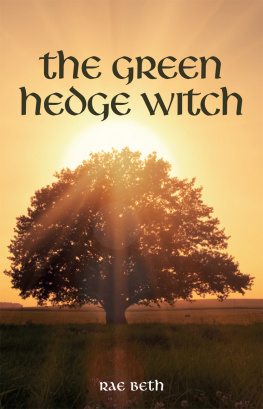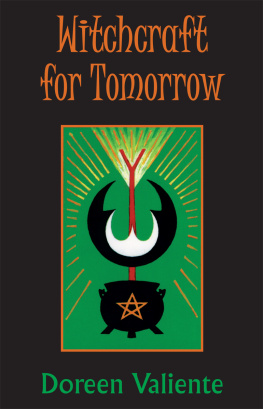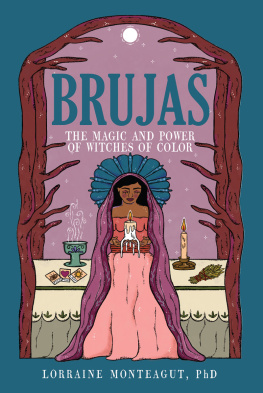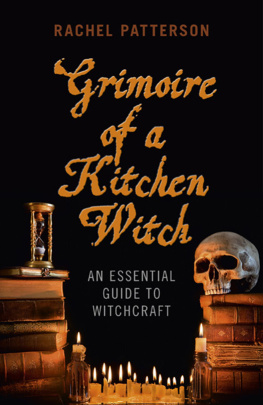Moral Power
Series: Epistemologies of Healing
General Editors: David Parkin, Fellow of All Souls College, University of Oxford and Elisabeth Hsu, Institute of Social and Cultural Anthropology, University of Oxford
This series in medical anthropology will publish monographs and collected essays on indigenous (so-called traditional) medical knowledge and practice, alternative and complementary medicine, and ethnobiological studies that relate to health and illness. The emphasis of the series is on the way indigenous epistemologies inform healing, against a background of comparison with other practices, and in recognition of the fluidity between them.
Volume 1
Conjuring Hope: Magic and
Healing in Contemporary Russia
Galina Lindquist
Volume 2
Precious Pills: Medicine and
Social Change among Tibetan
Refugees in India
Audrey Prost
Volume 3
Working with Spirit:
Experiencing Izangoma Healing
in Contemporary South Africa
Jo Thobeka Wreford
Volume 4
Dances with Spiders: Crisis,
Celebrity and Celebration in
Southern Italy
Karen Ldtke
Volume 5
The Land Is Dying: Contingency,
Creativity and Conflict in
Western Kenya
Paul Wenzel Geissler and Ruth
J. Prince
Volume 6
Plants, Health and Healing:
On the Interface of Ethnobotany
and Medical Anthropology
Edited by Elisabeth Hsu and
Stephen Harris
Volume 7
Morality, Hope and Grief:
Anthropologies of AIDS in Africa
Edited by Hansjrg Dilger and
Ute Luig
Volume 8
Folk Healing and Health Care
Practices in Britain and Ireland:
Stethoscopes, Wands and Crystals
Edited by Ronnie Moore and
Stuart McClean
Volume 9
Moral Power: The Magic of
Witchcraft
Koen Stroeken
Volume 10
Medicine between Science and
Religion: Explorations on
Tibetan Grounds
Edited by Vincanne Adams,
Mona Schrempf and Sienna R.
Craig
Moral Power
The Magic of Witchcraft
Koen Stroeken
First published in 2010 by
Berghahn Books
www.berghahnbooks.com
2010 Koen Stroeken
First ebook edition published in 2012
All rights reserved. Except for the quotation of short passages
for the purposes of criticism and review, no part of this book
may be reproduced in any form or by any means, electronic or
mechanical, including photocopying, recording, or any information
storage and retrieval system now known or to be invented,
without written permission of the publisher.
Library of Congress Cataloging-in-Publication Data
Stroeken, Koen.
/ Koen Stroeken.
p. cm. -- (Epistemologies of healing)
Includes bibliographical references and index.
ISBN 978-1-84545-735-8 (hardback : alk. paper) -- ISBN 978-1-84545-849-2 (ebook) 1. Witchcraft. I.
Title.
BF1566.S7916 2010
133.43--dc22
2010018547
British Library Cataloguing in Publication Data
A catalogue record for this book is available from the British Library
ISBN 978-1-84545-735-8 (hardback)
ISBN 978-1-84545-849-2 (ebook)
In a book that has several key players exhorting us to face our indebtedness and learn to live with it, the author should have no difficulty showing deep gratitude, and more. Wabeja, Paulo Makufuli. If I may translate the Sukuma formula of thanks: you made me. As did your classificatory father, Lukundula. Maria. Rosi. Wabeja. The healers Seele, Doto, Kulwa, Ngwana Chonja, Ngwana Mawe and all our neighbours from Wanzamiso. What would this book have been without you? Ngwana Kapini, now our ancestor, may you rest in peace. Ngwana Hande: that your dance in tears may continue to carry the spirit.
I am indebted to Mwendesha Sengasenga and his entire family. To Kwiligwa. My teacher Mzee Nzagamba from Nguge: that your novel be printed and widely read. My first teacher, Mzee Pastori Munyeti. My younger brother, Ndaki Munyeti for his unceasing enthusiasm to join us on our mad endeavours. So many others from Misungwi for the friendship in hard times. Let me quickly add, and not be cursed for the many I forgot: Manase Katarayha, Mzee Sakafu, Mzee Doto, Mama Nyanda and her son Peter, Charles, Sjack and Ab, Mama Dogani, Sosthenes, Docta Kinasa, Solile from Iteja, King Kaphipa. Whats the point of continuing the list?
Comprehending another epistemology of healing is a never-ending task. For their patience, I thank the Fund for Scientific Research (FWO) in Flanders, the main sponsor of my research. I am grateful to Ghent University for having me continue that work. Presses I should acknowledge include the University of Arizona Press, for reinterprets my paper Stalking the Stalker (2006). Many thanks are due to Mark Stanton and his team at Berghahn for turning my manuscript into a book.
There have been teachers back home. There is nobody like Per Brandstrm when it comes to thinking through concepts, Sukuma or other. Wabeja, baba. Experts on the spirit continue to be Geert Stroeken and Wim van Binsbergen. My deepest gratitude goes to Ren Devisch, who supervised my research and believed in it from the start. For their valuable comments over the years on parts of this book I should thank, among many others, Bruce Kapferer, Andrew Lattas, Dick Werbner, Peter Geschiere, Knut Rio, Michael Jackson, Michael Lambek, Terry Evens, Olaf Smedal, Philip Peek, Elisabeth Hsu, Annelin Eriksen, Simon Coleman, Sverker Finnstrm, Karin Barber, Ferdinand De Jong, Einat Bar-Cohen, Paul Bottelberge, Tie Roefs, Don Handelman and Galina Lindquist. Unceasing inspiration and challenging thoughts came from Frank van Lierde, Sophie Stroeken, Wout Quaethoven, Dirk Maetens, 16, and my beloved Annika Waag, to whom I would have dedicated this book had its content been different.
In May 2000 I returned to Tanzania for the first time to visit the people I had lived with during two years of fieldwork between May 1995 and June 1997. One of them was my first host and dear friend Butale. (The reason why I choose a fictitious name will soon become clear.) As the shaky drive down to his compound came to an abrupt stop, I found myself surrounded by acres of arid fields, sporadically dotted with stalks of dried maize. It had been an extremely bad year for farmers in this valley. The compound was ominously quiet. With pounding heart I entered but found nobody home. There was no fresh cattle dung and all the houses were deserted, even the large round adobe house where Butale used to live. One rusty shutter, moving in the wind, carried a chalk message written by his son: Do not enter without knocking. The command in the national language of Swahili was very unlike the serenity of Butale and the family I used to know. While I had naively expected to pick up the thread where I had left it, here glowed the embers of disaster, the sort I had studied three years ago, in other places.






